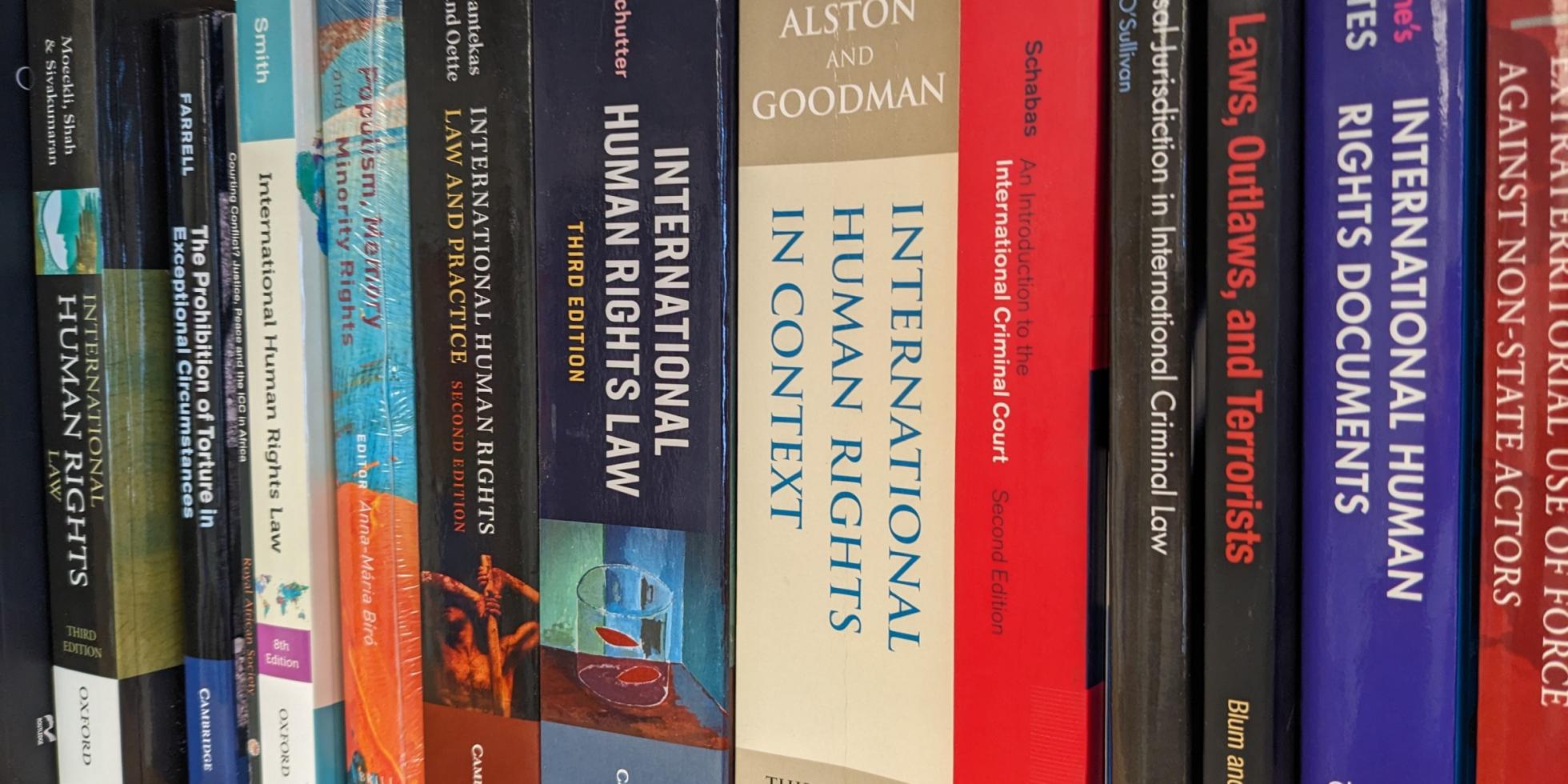The virtual human rights library brings together resources from multiple libraries and information services, both internal and external, to create an online hub dedicated to the study of human rights. This curation is unique in its interdisciplinary concerns and focuses on writings and research from social sciences, humanities, and law.
The virtual library is continually updated with the latest academic research in issue areas, as well as with relevant films, recorded conversations, and other forms of media.
Please Note:
The Virtual Library is usable by all visitors, but the hyperlinks to materials listed are for UChicago community members with a CNet ID and password.
Please direct feedback and suggestions to Kathleen Cavanaugh.
For technical assistance, email pozenhumanrights @ uchicago.edu.
Searchable Database
Click into the dropdowns to select the disciplines, keywords, and media type for your search, and then hit "Apply."
"Slave to the Algorithm? Why a 'Right to an Explanation' Is Probably Not the Remedy You Are Looking For"
Algorithms, particularly machine learning (ML) algorithms, are increasingly important to individuals’ lives, but have caused a range of concerns revolving mainly around unfairness, discrimination and opacity. Transparency in the form of a “right to an explanation” has emerged as a...
"Social Justice and Sociology: Agendas for the Twenty-First Century."
The world's peoples face daunting challenges in the twenty-first century. While apologists herald the globalization of capitalism, many people on our planet experience recurring economic exploitation, immiseration, and environmental crises linked to capitalism's spread. Across the globe social movements continue...
"Social Movements and Policy Implementation: The Mississippi Civil Rights Movement and the War on Poverty, 1965 to 1971."
This study of the Mississippi civil rights movement and the War on Poverty examines the relationship between social movements and policy implementation. A "movement infrastructure" model is developed that focuses on organizational structure, resources, and leadership to account for the...
"Sociologists confront human rights: the problem of universalism."
This paper examines sociologists' current interest in the topics of human rights and globalisation. Some descnbe a world where everyone has rights (or at least a modicum of rights), because we are all human, and we all interact and communicate...
"Sociology and Human Rights in the Post‐Development Era."
This article explores the dilemmas of the sociology of human rights – a growing field of academic research. Sociologists are increasingly conceptualizing poverty, global economic inequality, and social inequalities of race, class, gender, and sexual orientation not as social problems...
"Sociology of reconciliation: Learning from comparing violent conflicts and reconciliation processes."
This article aims at drawing on sociological insights into reconciliation processes which emerge out of ethnic, national and state conflicts. First, the concept of reconciliation is interrogated as an instrument for sociological enquiry. The article locates the concept’s lexical origins...
"Sovereignty Relinquished? Explaining Commitment to the International Human Rights Covenants, 1966-1999."
This article examines whether the content of the International Human Rights Covenants and the costs associated with their ratification influence the decision of countries to join. The author evaluates three theoretical perspectives-rationalism, world polity institutionalism, and the clash of civilizations-with...
"Sovereignty transformed: a sociology of human rights "
This paper examines how global interdependencies and the consolidation of a human rights discourse are transforming national sovereignty. Social researchers frequently address the supremacy of state sovereignty and the absoluteness of human rights as mutually exclusive categories. However, rather than...
"Standardizing Refuge: Pipelines and Pathways in the US Refugee Resettlement Program."
How do bureaucracies pattern durable inequalities? Predominant approaches emphasize the role of administrative categories, which prioritize certain populations for valued resources based on broader regimes of human worth. This article extends this body of work by examining how categorical inequalities...
"Starting Where the Client Is: Harm Reduction Guidelines for Clinical Social Work Practice"
Harm reduction has gradually entered social work discourse and is now seen as a promising approach for treating individuals with drug and alcohol problems. However, beyond statements and data supporting the utility of a harm reduction approach, few guidelines for...

